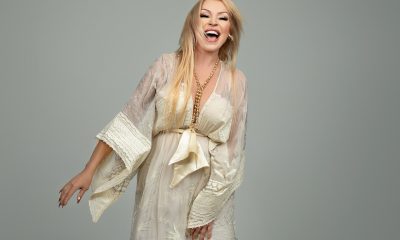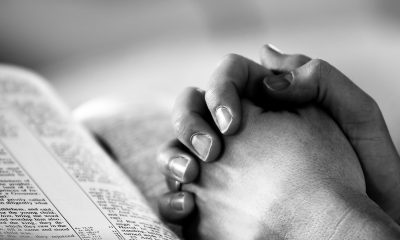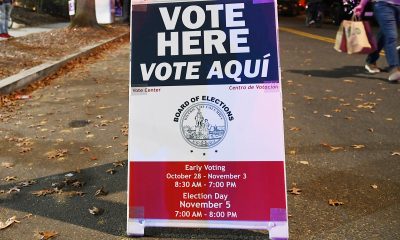Sports
Gay athletes talk religion and faith
Church teachings complicate coming out process for many
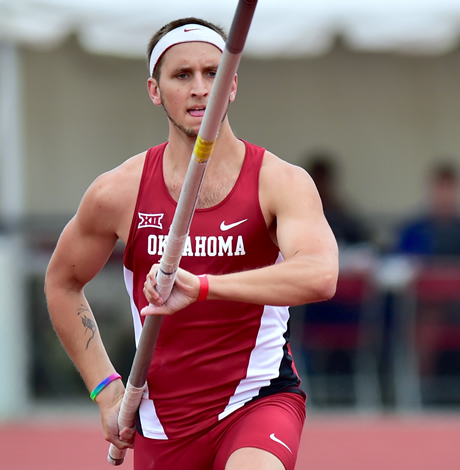
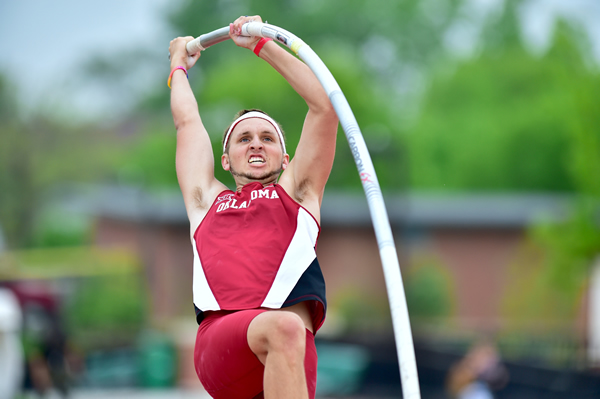
Tanner Williams (Photo courtesy of Oklahoma University Athletics)
There have been a vast number of coming out stories told recently that share a common thread that it isn’t easy to accept your sexual identity when it is not considered “normal.”
The self-acceptance process is generally filled with shame, insecurities, fear and often depression. Homophobia is exactly what you don’t want to experience when you are dealing with finding your true self.
There are other identities that you are not born with, those that are chosen, that also come with homophobia. Religion and sports can be extremely homophobic environments that can add even more emotion to the inner struggle of growing up gay.
It seems like an impossible bridge to gap. Why not just walk away from the two you can choose to walk away from, religion and sports?
Meet three men who are gay, played sports and grew up with religion. All three of them say it is not religion that bridged the three struggles, but rather their individual faith.
When you speak to Josh Sanders, there is a sense of calm that emanates from him. He describes his relationship with religion as being vertical and horizontal and more of a personal journey.
“The vertical is the relationship between me and God and the horizontal is me and the eyes of other people,” says Sanders. “I should never look at myself through the eyes of others.”
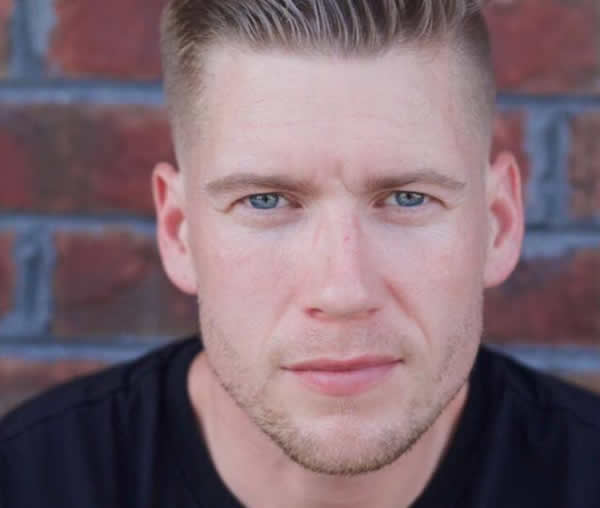
Josh Sanders (Photo courtesy of Charyln)
Sanders grew up playing basketball and intended to walk onto the team at Virginia Wesleyan but ended up dropping out to address his inner struggles. He began coaching a local high school team and enrolled at James Madison University. His path led to him to work with various Christian sports ministries and he became the athletic director at a Christian sports camp. After surviving six months of conversion therapy, he came out to his employer only to be told he couldn’t return to the sports camp position that he had held for six years because of his sexuality.
“There is an exclusive tone to the intersection between religion and sexuality. It is the church versus the gay community,” Sanders says. “I don’t separate those two parts of myself. I can be both and there is nothing exclusive about that. If you can’t acknowledge that I can be both, then you are not seeing all of me.”
Sanders, who is living in the Virginia Beach area, has been getting involved again with sports as director of external engagement for GO! Athletes. He is also involved in its extension project, GO! Faith, which provides an inclusive space for young LGBT athletes, coaches and administrators of faith to come together for fellowship and encouragement.
“Biblical literalism is alive today but I think context is everything. It makes no sense to apply those writings to life today,” says Sanders. “The Bible leads the direction of my faith, but it is my own personal interpretation.”
Sanders attends a large evangelical church on occasion that is not LGBT friendly. He says he goes there because of the loving friendships he has made with some of its members.
“We [the LGBT community] are the ones that need to take the initiative to get people from the church to step outside their own experience and actually get to know us,” Sanders says. “Once that happens, there can be change.”
Tanner Williams was so shy as a kid that he was afraid to speak to people. He would wait outside after track practice in hopes of getting through a day without being called a fag. Because of his Southern Baptist upbringing in Ardmore, Okla., he spent a lot of time in those isolated moments wondering why he was gay.
In the sixth grade, his coach got him into pole vaulting and within two years, he won a national championship and followed that up with two state championships in high school.
“I was a really religious kid and I put all my trust in God and pole vaulting,” says Williams. “I had no friends and my time was spent praying and talking to God.”
During his freshman year at Oklahoma University, the mother of a girl he had been formerly promised to for marriage, began stalking Williams through a fake Twitter and Facebook account, threatening to out him, he says. A police report was filed and security was increased at the Big 12 Championships in Waco, Texas, where Williams was competing in the pole vault for the Sooners.
“I grew up with people telling me it’s a choice to be gay and I fell for it,” Williams says. “When things like harassment happen, it just reinforces the feeling that there is something wrong with you.”
Williams began coming out to friends two years ago at age 19 and is now only occasionally attending church. He says he feels sorry for members of organized religion who propagate homophobia because they pick and choose what they believe in the Bible.
“They don’t study the bible like I do and they don’t look at it like I do.” says Williams. “I study it and find the content for me, what God wants for me.”
Williams is coming up on his senior year at Oklahoma University and will be graduating with a degree in business management and nursing. Last year at age 20 he married his partner, Scott Williams and he is looking forward to what the future has to offer.
“I love competing but I am ready to move on,” Williams says. “I will be the only senior on the Sooners track team this year so I will be stepping forward as more of a leader. I guess that’s my management side coming out.”
When Akil Patterson was playing football for the University of Maryland, his mom was commuting from Frederick, Md., to get her master’s degree and used to pick her son up for church. He always felt he wasn’t being honest because the black church he attended was adamantly opposed to homosexuality. He sometimes brought his teammates along so he would feel more comfortable. It was during one of those rides to church that Patterson came out to his mom.
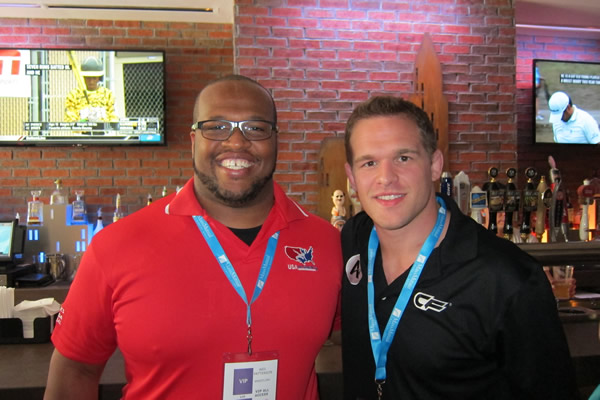
Akil Patterson pictured with Washington Blade guest editor Hudson Taylor. (Photo by Kevin Majoros)
“I was struggling during my coming out process and I turned to my faith,” says Patterson. “God doesn’t get you out of things; he just helps you get through them.”
After his football career ended, Patterson returned to the University of Maryland campus and became involved with coaching for their wrestling programs. The Terrapin Wrestling Club is also a regional Olympic training center for USA Wrestling and Patterson began competing in Greco-Roman wrestling.
Recently retired from sports, Patterson still attends church and says that everything a person needs is in the Bible and subject to one’s own interpretation. He likes going to church because of the sense of camaraderie and fellowship and is attending a more affirming church now.
“When that black pastor says that being gay is wrong, everyone starts screaming and it creates a wolf pack mentality,” Patterson says. “If the pastors would stop talking about it, people in the black community would follow. They will defend you and look out for you, but they don’t want to hear about that part of you.”
Patterson said that organized religion is directed at a certain type of people, those who are not secure in their faith.
“Those people are not rooted and don’t understand how the book is translated. Too many of them think that faith is what you learned in church,” Patterson says. “The church is religion but faith is beyond that. I am a man of faith.”
Sports
Trans cyclist’s victory sparks outrage in conservative media
Katheryn Phillips is originally from DC
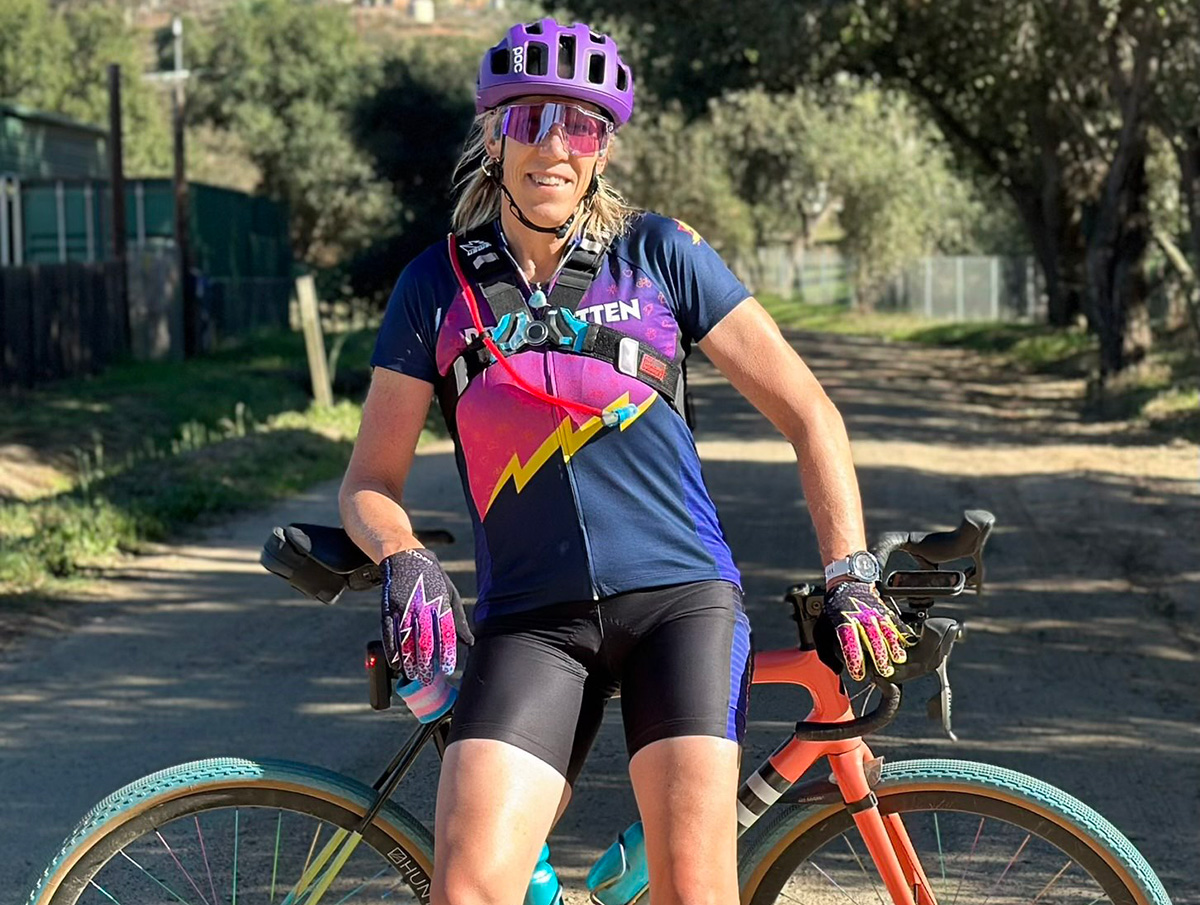
On the heels of UPenn erasing the record of the first openly transgender NCAA Division I All-American swimmer and the U.S. Supreme Court’s decision to tackle bans on trans student-athletes, right wing media is now all hot and bothered about the latest trans woman who won a cycling championship — even though she competed according to the rules.
On Tuesday, 58-year-old Katheryn Phillips finished first in USA Cycling’s Lyons Masters National Championship race for women aged 55-59, with a time of 1:42:10, according to the official results posted by the organization. The record shows her gender as “F” for female.
One second behind Phillips was Julie Peterson, with a time of 1:42:11 — as were three other cyclists: Mary Beth Grier, Andrea Cherniak-Tyson, and Carolyn Maddox.
Peterson, 57, was so outraged, she told Fox News she refused to stand on the podium in second place next to Phillips. Her story was swiftly shared by the New York Post (also owned by Fox’s parent company News Corp.), the Daily Mail, Breitbart, and other conservative media.
Both Peterson and another competitor are accusing USA Cycling of “hiding” that a transgender woman had registered to race.
“It was hidden from us. Katheryn Phillips, KJ’s name, was not on that list. And I checked it up all the way to the point of closure when we couldn’t register online anymore,” Debbie Milne told Fox.
“If I had known, I wouldn’t have spent thousands of dollars in travel and time off work to come and do a race,” Peterson said. Fox welcomed Milne, 56, who finished seventh on Tuesday, to Fox & Friends Thursday morning.
(Video courtesy of Fox News)
Peterson told Fox she did complain to USA Cycling officials prior to the race. Both Milne and Peterson referred to Phillips as a male, and with “he/him” pronouns.
“To be fair to all humans, if we want to say ‘him’ or ‘her,’ he was born a biological male, that is a fact,” Milne said. “And that is the thing that makes it an unfair advantage. Whatever has happened after that is a whole different topic.”
“I said, ‘I don’t want to race against a man,’ and they quickly scolded me and said ‘Oh, you can’t call him a man,’ and I’m like ‘Well, he is a man,’ so I was quickly scolded and corrected that it is a woman and I don’t even know what to say.”
USA Cycling did not respond to the Washington Blade’s emails requesting comment.
Phillips, who goes by Kate and by “KJ,” is a former rugby player with the D.C. Furies, who stated in the comments of a 2024 article published by Zwift Insider that she was the first out trans athlete in the U.S. to compete under the 2004 International Olympic Committee’s guidelines on trans participation.
“When USA Rugby told me about the IOC decision in 2004, I raised my hand to be included. I experience nothing but joy when I play, ride, and race,” Phillips said.
As the Blade has reported, the International Olympic Committee drastically revised those rules in 2021, and in March, Republican lawmakers in D.C. demanded the IOC ban trans female athletes from women’s sporting events altogether.
The Blade also reached out to Phillips for comment but as of press time we have not received a response. She told Zwift Insider in March 2024 she does not let those who disapprove or spread hate impact her performance or her attitude.
“I am unaffected by dissent. I love, I share joy, I am me, and I have been my authentic self for decades,” she said. It’s been reported Phillips came out in 1999, and told Zwift Insider she considers herself a lifelong cyclist.
“I’ve been on a bike for as long as I can remember,” said Phillips. “As kids, my friends and I rode all over town, we were feral kids; no cell phones, no trackers … we just roamed, and nobody got in trouble or hurt bad enough not to ride home … Scrapes/bruises/cuts were not an issue for us. In my teens, I worked for myself as a court/legal messenger, doing all of the work via my bike until I got a car. Raced BMX as a kiddo (when I mowed lawns to cover the race entry fees), I did MTB stuff (non-racing) and Sprint/Olympic Triathlons in my 30’s, and now I’m racing on Zwift, Road/Gravel, and CX in my 50s.”
In the comments section, Phillips made clear she’s not competing to win.
“I don’t do sports for victory, I do it because like many other women, I am an athlete to my core,” she said. “Unlike some, I am not there to WIN, I am there to do my best with the competitors and teammates I have around me trying to do the same…we are in it for the experience. I rejoice in their wins, and a lot of joy is reflected back to me when I have a good day.”
India
Anaya Bangar challenges ban on trans women in female cricket teams
Former Indian cricketer Sanjay Bangar’s daughter has received support

Anaya Bangar, the daughter of former Indian cricketer Sanjay Bangar, has partnered with the Manchester Metropolitan University Institute of Sport in the U.K. to assess her physiological profile following her gender-affirming surgery and undergoing hormone replacement therapy.
From January to March 2025, the 23-year-old underwent an eight-week research project that measured her glucose levels, oxygen uptake, muscle mass, strength, and endurance after extensive training.
The results, shared via Instagram, revealed her metrics align with those of cisgender female athletes, positioning her as eligible for women’s cricket under current scientific standards. Bangar’s findings challenge the International Cricket Council’s 2023 ban on transgender athletes in women’s cricket, prompting her to call for a science-based dialogue with the Board of Control for Cricket in India and the ICC to reform policies for trans inclusion.
“I am talking with scientific evidence in my hand,” Bangar said in an interview posted to her Instagram page. “So, I hope, this makes an impact and I will be hoping to BCCI and ICC talking with me and discussing this further.”
On Nov. 21, 2023, the ICC enacted a controversial policy barring trans women from international women’s cricket. Finalized after a board meeting in Ahmedabad, India, the regulation prohibits any trans player who has experienced male puberty from competing, irrespective of gender-affirming surgery or hormone therapy. Developed through a 9-month consultation led by the ICC’s Medical Advisory Committee, the rule aims to safeguard the “integrity, safety, and fairness” of women’s cricket but has drawn criticism for excluding athletes like Canada’s Danielle McGahey, the first trans woman to play internationally. The policy, which allows domestic boards to set their own rules, is slated for review by November 2025.
Bangar shared a document on social media verifying her participation in a physiological study at the Manchester Metropolitan University Institute of Sport, conducted from Jan. 20 to March 3, 2025, focused on cricket performance. The report confirmed that her vital metrics — including hemoglobin, blood glucose, peak power, and mean power — aligned with those of cisgender female athletes. Initially, her fasting blood glucose measured 6.1 mmol/L, slightly above the typical non-diabetic range of 4.0–5.9 mmol/L, but subsequent tests showed it normalized, reinforcing the study’s findings that her physical profile meets female athletic standards.
“I am submitting this to the BCCI and ICC, with full transparency and hope,” said Bangar. “My only intention is to start a conversation based on facts not fear. To build space, not divide it.”
In a letter to the BCCI and the ICC, Bangar emphasized her test results from the Manchester Metropolitan University study. She explained that the research aimed to assess how hormone therapy had influenced her strength, stamina, hemoglobin, glucose levels, and overall performance, benchmarked directly against cisgender female athletic standards.
Bangar’s letter to the BCCI and the ICC clarified the Manchester study was not intended as a political statement but as a catalyst for a science-driven dialogue on fairness and inclusion in cricket. She emphasized the importance of prioritizing empirical data over assumptions to shape equitable policies for trans athletes in the sport.
Bangar urged the BCCI, the world’s most influential cricket authority, to initiate a formal dialogue on trans women’s inclusion in women’s cricket, rooted in medical science, performance metrics, and ethical fairness. She called for the exploration of eligibility pathways based on sport-specific criteria, such as hemoglobin thresholds, testosterone suppression timelines, and standardized performance testing. Additionally, she advocated for collaboration with experts, athletes, and legal advisors to develop policies that balance inclusivity with competitive integrity.
“I am releasing my report and story publicly not for sympathy, but for truth. Because inclusion does not mean ignoring fairness, it means measuring it, transparently and responsibly,” said Bangar in a letter to the BCCI. “I would deeply appreciate the opportunity to meet with you or a representative of the BCCI or ICC to present my findings, discuss possible policy pathways, and work towards a future where every athlete is evaluated based on real data, not outdated perceptions.”
Before her transition, Bangar competed for Islam Gymkhana in Mumbai and Hinckley Cricket Club in the U.K., showcasing her talent in domestic cricket circuits. Her father, Sanjay Bangar, was a dependable all-rounder for the Indian national cricket team from 2001 to 2004, playing 12 test matches and 15 One Day Internationals. He later served as a batting coach for the Indian team from 2014 to 2019, contributing to its strategic development.
Cricket in India is a cultural phenomenon, commanding a fanbase of more than 1 billion, with more than 80 percent of global cricket viewership originating from the country.
The International Cricket Council, the sport’s governing body, oversees 12 full member nations and more than 90 associate members, with the U.S. recently gaining associate member status in 2019 and co-hosting the 2024 ICC Men’s T20 World Cup. The BCCI generated approximately $2.25 billion in revenue in the 2023–24 financial year, primarily from the Indian Premier League, bilateral series, and ICC revenue sharing. The ICC earns over $3 billion from media rights in India alone for the 2024–27 cycle, contributing nearly 90 percent of its global media rights revenue, with the BCCI receiving 38.5 percent of the ICC’s annual earnings, approximately $231 million per year.
Women’s cricket in India enjoys a growing fanbase, with over 300 million viewers for the Women’s Premier League in 2024, making it a significant driver of the sport’s global popularity. The International Cricket Council oversees women’s cricket in 12 full member nations and over 90 associate members, with the U.S. fielding a women’s team since gaining associate status in 2019 and competing in ICC events like the 2024 Women’s T20 World Cup qualifiers. The BCCI invests heavily in women’s cricket, allocating approximately $60 million annually to the WPL and domestic programs in 2024–25, while contributing to the ICC’s $20 million budget for women’s cricket development globally. India’s media market for women’s cricket, including WPL broadcasting rights, generated $120 million in 2024, accounting for over 50 percent of the ICC’s women’s cricket media revenue.
“As a woman, I feel when someone says that they are women, then they are, be trans or cis. A trans woman is definitely the same as a cis woman emotionally and in vitals, and specially, when someone is on hormone replacement therapy. Stopping Anaya Bangar from playing is discrimination and violation of her rights. It is really sad and painful that every trans woman need to fight and prove their identity everywhere,” said Indrani Chakraborty, an LGBTQ rights activist and a mother of a trans woman. “If ICC and BCCI is stopping her from playing for being transgender, then I will say this to be their lack of awareness and of course the social mindsets which deny acceptance.”
Chakraborty told the Blade that Bangar is an asset, no matter what. She said that the women’s cricket team will only benefit by participation, but the discriminating policies are the hindrance.
“Actually the transgender community face such discrimination in every sphere. In spite of being potent, they face rejection. This is highly inhuman. These attitudes is regressive and will never let to prosper. Are we really in 2025?,” said Chakraborty. “We, our mindset and the society are the issues. We, as a whole, need to get aware and have to come together for getting justice for Anaya. If today, we remain silent, the entire community will be oppressed. Proper knowledge of gender issues need to be understood.”
The BCCI and the International Cricket Council have not responded to the Blade’s repeated requests for comment.
Sports
English soccer bans transgender women from women’s teams
British Supreme Court last month ruled legal definition of woman limited to ‘biological women’
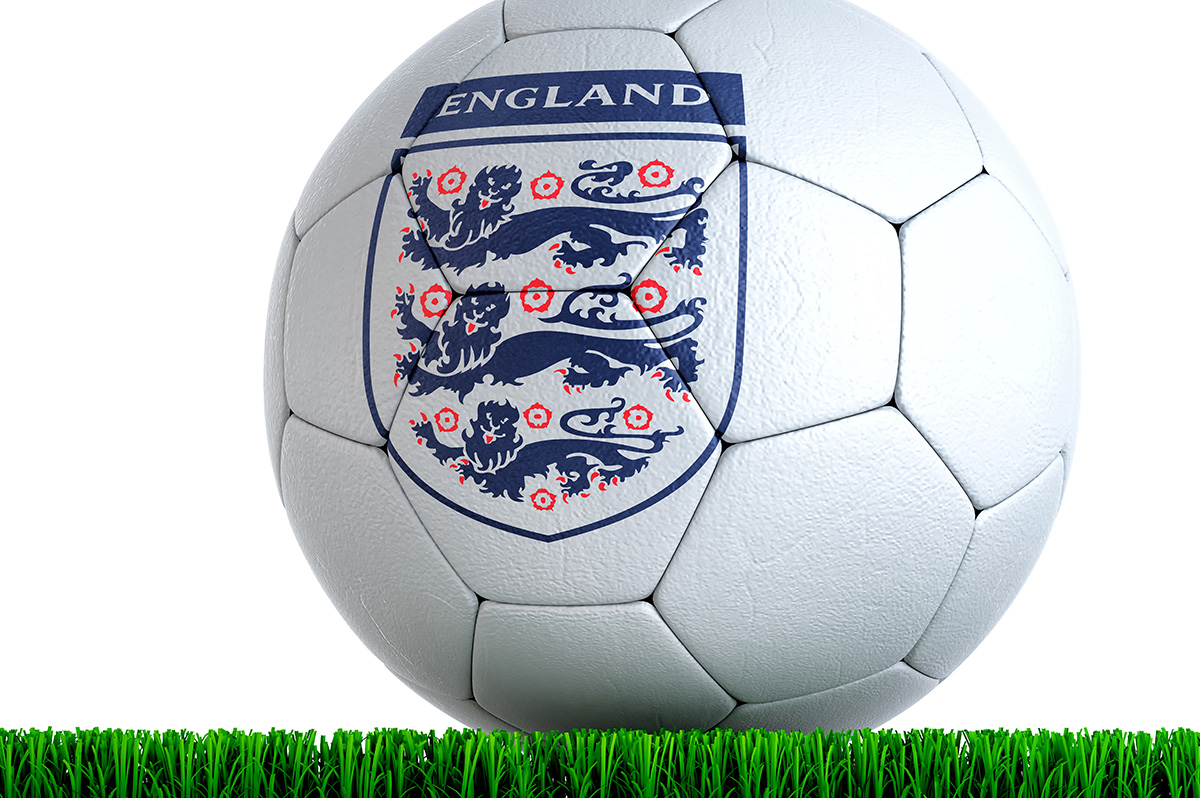
The organization that governs English soccer on Thursday announced it will no longer allow transgender women to play on women’s teams.
The British Supreme Court on April 16 ruled the legal definition of a woman is limited to “biological women” and does not include trans women. The Football Association’s announcement, which cites the ruling, notes its new policy will take effect on June 1.
“As the governing body of the national sport, our role is to make football accessible to as many people as possible, operating within the law and international football policy defined by UEFA (Union of European Football Associations) and FIFA,” said the Football Association in a statement that announced the policy change. “Our current policy, which allows transgender women to participate in the women’s game, was based on this principle and supported by expert legal advice.”
“This is a complex subject, and our position has always been that if there was a material change in law, science, or the operation of the policy in grassroots football then we would review it and change it if necessary,” added the Football Association.
The Football Association also acknowledged the new policy “will be difficult for people who simply want to play the game they love in the gender by which they identify.”
“We are contacting the registered transgender women currently playing to explain the changes and how they can continue to stay involved in the game,” it said.
The Football Association told the BBC there were “fewer than 30 transgender women registered among millions of amateur players” and there are “no registered transgender women in the professional game” in England, Scotland, Wales, and Northern Ireland.
The Scottish Football Association, which governs soccer in Scotland, is expected to also ban trans women from women’s teams.

